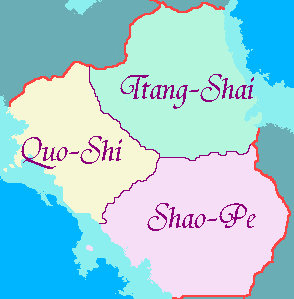
INFIDELS!
If you are not privvy to our great history,
then you are an un-educated foreign dog!
We have no time to give history lessons to imbeciles
wanting to know of our illustrious past!
Perhaps you should visit our great nation if you dare,
and beg the common people to show you the light of how
those who are not animalistic pigs live everyday life
in Nguya!
But be warned if you are of the exploitive usurpers who
we exiled forcibly from our great homeland.
Bourgeois swine will not be tolerated!!










